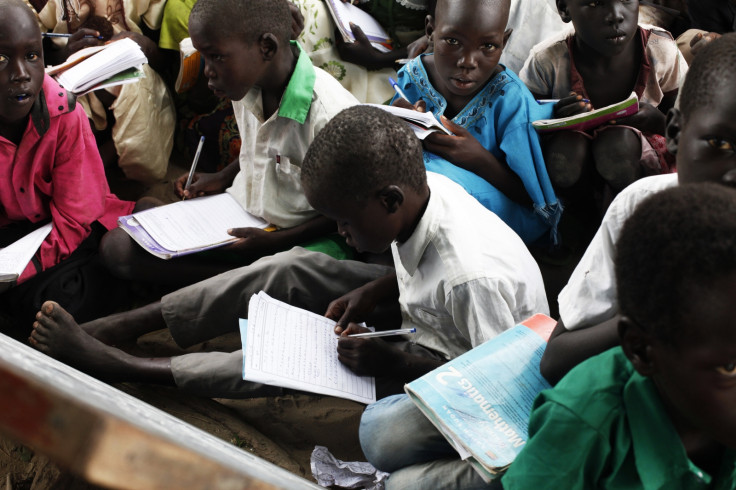How Supporting Education Will Unlock a Business Boom

No two factors are more important for guaranteeing a brighter future for the world's population than good health and good education.
Corporate Social Responsibility (CSR) giving to date has overwhelmingly focused on healthcare projects, which attract 16 times the amount given to education, according to the Brookings Institution.
This investment has led to hugely positive impacts such as the introduction of new drugs to prevent killer diseases like malaria or HIV in developing countries. Yet improving global education has not seen anything like the same levels of investment from business.
Of course, nothing would seem more important than saving lives and preventing disease.
But we should not forget that, while less dramatic, poor education is an equally destructive force, preventing people from improving their lives over the longer term, causing deep frustrations, and squandered opportunities that are harmful for the individual and society.
Today, more than 58 million children are out of school.
Millions more are in education but not learning - and there remains a profound mismatch between what many children learn and the skills they need to succeed in life and in work. According to Unesco, there is an annual funding gap of £16bn (€20.3bn, $25.7bn) in global education required to achieve basic schooling for all children in low-income countries.
This is a crisis, which should be a major concern for business. An inability to secure talent with the right skills will keep companies from being able to expand into developing countries, enter new markets or launch new products or services.
Today, some of the UK's leading companies will meet at a major London summit hosted by Mayor of London, Boris Johnson, for the UK launch of the Business Backs Education campaign.
The campaign, which is run in partnership with UNESCO, challengesbusiness to commit 20% of their global corporate social responsibility (CSR) spend on education by 2020.
According to a report released today, UK companies currently commit less than half that amount.
The campaign has already gained significant momentum. A series of summits are being held worldwide, with last month's event in New York hosted by the Clinton Global Initiative. Leading companies including Standard Chartered and PricewaterhouseCoopers have already signed up.
Help from the State and Corporations
The Business Backs Education campaign recognises that the state is too stretched in many countries, and that business can offer the expertise to help bridge the skills gap. That's already the case in India and the Middle East where the commitment to CSR often comes from enlightened self-interest as companies are required to train their own workers.
The Indian IT giant Infosys has its own education centre that ensures thousands of new recruits have the requisite technical, communications and management skills. T
hese exemplary employer initiatives, however, are no substitute for basic skills learnt at school.
There is a myriad of ways in which business can contribute to education. To single out a few vastly different projects: Santander, in partnership with the UK's leading financial education charity pfeg (Personal Finance Education Group), are giving pupils from secondary schools training in how to manage their money, integrating the teaching of personal finance into the school curriculum.
Aviva is funding the 'Street to school programme' which is helping children living on the streets re-enter mainstream education. And Deutsche Bank has funded shipping container classrooms to educate migrant children in Beijing.
These initiatives are important, but they're not enough. Early next year, Business Backs Education will publish a report on the spending that the world's top ranking companies commit to education projects. This will help establish a baseline from which global business can move forward.
We urge business leaders from around the world to take a look at their philanthropic spend and question how much goes to helping children receive the education they deserve. How much is helping them raise themselves out of poverty and dream of better lives? How much is equipping them with the skills they and their country need to compete in tomorrow's world?
This campaign comes at exactly the right moment, but it is useless unless the world's business leaders ask themselves these questions. We urge other businesses to join us and sign up to this campaign now.
Jim Hagemann Snabe is former Co-CEO of SAP and Co-Chair of Business Backs Education. Majid Jafar is CEO of Crescent Petroleum and Co-Chair of Business Backs Education.
© Copyright IBTimes 2025. All rights reserved.





















